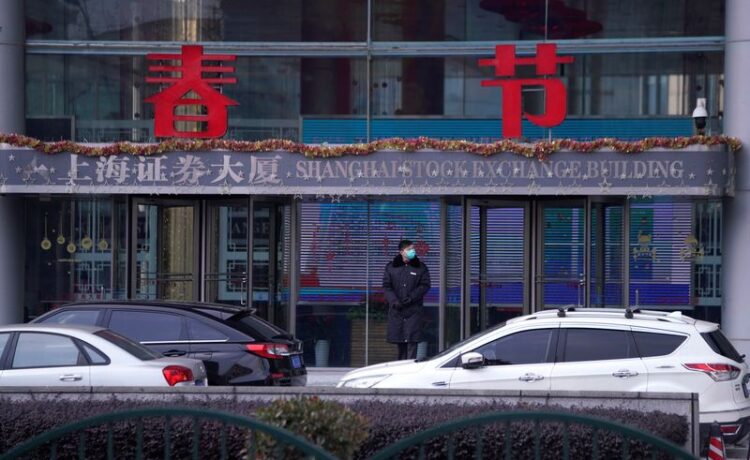By Jamie McGeever
(Reuters) – A look at the day ahead in Asian markets.
All eyes – not least those of policymakers in Beijing – will laser in on Chinese stocks on Wednesday to see if they can continue their surge higher on the latest wave of expectations that authorities will take further steps to support markets.
China’s big two indexes jumped more than 3% on Tuesday for their biggest gains in almost two years, although it should be remembered that only last week had sunk to five-year lows.
Still, the bounce suggests that the overwhelming gloomy sentiment towards China, even if you think it is justified on a longer term fundamental basis, is probably over-cooked in the short term.
Bloomberg News had reported President Xi Jinping will discuss the stock market with financial regulators. Regulators also announced further curbs on short selling and state investors said they were expanding their stockbuying plans.
Of course, those of a more bearish disposition will view any spike higher as a better level to sell. These are mostly short-term fixes to stop the asset price rot, and will do little to address the country’s deeper-rooted economic problems.
China’s rally propelled the MSCI Asia & Pacific ex-Japan index to a 1.5% gain on Tuesday, its best day this year. The retreat in U.S. bond yields and the dollar could also provide further impetus for risk assets in the region on Wednesday.
The economic calendar on Wednesday is packed with potential market-moving data in several countries, while the Bank of Thailand delivers its latest policy decision and guidance.
Governor Sethaput Suthiwartnarueput’s press conference could be particularly interesting should he respond to Prime Minister Srettha Thavisin’s latest call on Tuesday for rates to be cut to revive economic growth.
Thavisin, who is also the finance minister, has been at loggerheads with the central bank over the direction of monetary policy, arguing the economy needed support and warning that the country risks facing deflation.
All 27 economists in a Reuters poll expect the BOT to keep its benchmark one-day repurchase rate unchanged at 2.50%, and 18 of 25 respondents predict no change this year. Rates markets pricing points to 40 basis points of cuts by year-end.
Foreign exchange reserves rarely have an immediate impact on financial markets, but many investors will be paying close attention to the latest snapshot of China’s on Tuesday.
China’s $3.238 trillion stash of FX reserves, the world’s largest, are the highest in a year. The share of that held in U.S. Treasuries, however, is falling – it is now less than 3%, down from a record 14% in 2011.
These calculations are based on China’s official reserves. Some analysts reckon the true total could be closer to $4 trillion once the holdings of state banks and off-shore entities are taken into account.
Here are key developments that could provide more direction to markets on Wednesday:
– Thailand interest rate decision
– China FX reserves (January)
– New Zealand unemployment (Q4)
(By Jamie McGeever; Editing by Bill Berkrot)














